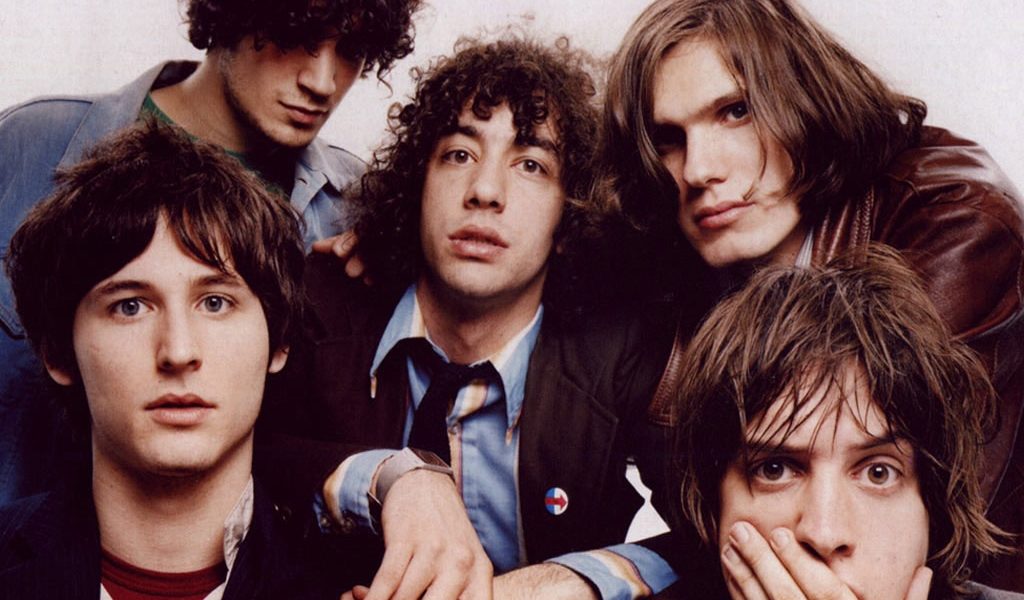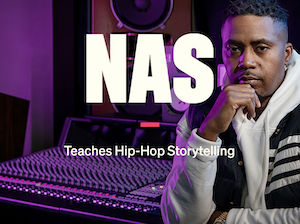A wild guess at the musical future

text: Michael Raine
Predicting the future is a risky endeavour at best and a completely pointless one at worst. Predictions, whether they are about pop culture or the apocalypse, most would agree are best left to Nostradamus, the Mayans, and senile Californian televangelists. With that being said, I’m going to predict the future. More specifically, I’m going to (pointlessly) predict which modern bands/artists are going to be remembered and revered in 20 years’ time.
It can be fascinating to learn which bands from past decades were popular and/or critically acclaimed in their day but don’t exist in the world of classic rock radio (like The Move in the ‘60s, Poco in the ‘70s etc.).
And we all know the bands that would later define their respective decades on the radio (The Beatles, Led Zeppelin, U2, and Nirvana). That poses the question: which bands/artists will define the 2000s on classic rock stations in 2032? (Unless, of course, the Mayans and senile televangelists were correct. In which case, there will be few radio listeners left.)
To think of it a different way, in 20 years, which current bands will be essential listening for anyone who wants to understand (for lack of a better term) rock music from the early 2000s?
This question is possibly trickier now than any time in modern history. It’s always difficult to understand the future historical significance of something, be it a band or a technological development, while it’s still occurring. Nonetheless, you didn’t have to be a psychic in the ‘80s or ‘90s to know U2 and Nirvana would be remembered since their legendary status was instant and unmistakable.
But as Alan Cross wrote in a column in February, “the music industry has been lousy at creating new legendary acts over the last dozen years.” The economic, technological, and sociological reasons for this could be the subject of a lengthy graduate thesis, so I’m going to skip them.
Instead, here are five bands/artists from the past 12 years that I believe will be considered essential listening for music history geeks in 2032. Keep in mind that I am only looking at rock/indie music of bands/artists who debuted in 2000 or later.
5 – Bon Iver – Of the five names on this list, Bon Iver is the most likely to make me say, What the hell was I thinking? when I have the clarity of hindsight in 2032. After all, the folk rock revival was alive and well in indie music long before Bon Iver arrived. Plus, Bright Eyes, Fleet Foxes, Grizzly Bear, Iron and Wine, and others all released fantastic, and arguably better, folk-tinged albums before or around the same time as Bon Iver’s 2008 debut For Emma, Forever Ago.
However, none of those groups were able to cross the indie/mainstream divide as successfully as Bon Iver did with its self-titled sophomore album in 2011.
When a band wins two Grammys and also receives the Album of the Year designation by self-appointed indie cred gatekeeper Pitchfork, you know it has achieved that ultra-rare feat of crossing over into the mainstream while remaining “cool.” And if the music isn’t remembered, those “Who is Bonny Bear?” tweets by confused Grammy watchers were too funny to forget.
4 – Arctic Monkeys – Many North Americans probably question the Arctic Monkeys’ inclusion on this list, but it’s hard to overstate this band’s significance in the U.K. over the past six years. They’re just the latest in a long line of British bands – such as The Smiths, The Stone Roses, and Oasis – that achieve massive popularity and critical acclaim in their homeland but never experience the same level of success in North America.
However, their post-punk riffs and Alex Turner’s uber-British lyricism made 2006’s Whatever People Say I Am, That’s What I’m Not the fastest selling British debut album of all time. That album alone was enough for Britain’s NME Magazine to declare them Our Generation’s Most Important Band.
As well, their stunningly fast assent to stardom –the result of online file sharing and a fan-created MySpace page – has seen them called the first great musical success story of the Internet age. Though they may never recreate the mania that surrounded their debut, four albums in, an Arctic Monkeys’ release remains a cultural event in the U.K.
3 – Arcade Fire – Like the bands at number two and four on this list, Arcade Fire has released multiple critically acclaimed albums – and even received an Album of the Year Grammy for 2010’s The Suburbs – but their real significance lies in their debut album.
Funeral received rave reviews from just about every music publication on the planet and was in the top 10 of every “best of the 2000s” list during the 2009 rush to judge the past decade.
But ultimately the Montreal band has proven to be much more than just Funeral. Frankly, it’s near impossible to find a negative album or concert review of Arcade Fire. In just three albums, they’ve become indie rock royalty, celebrated for their epic anthems, daring instrumentation, and emotive lyrics.
2 – The Strokes – To even greater extent than either Arcade Fire or Arctic Monkeys, The Strokes’ legacy and significance is the result of a single brilliant album.
It’s easy to forget just how dismal the state of rock and roll was in 2001 when The Strokes released their debut album, Is This It? In North America, teen pop was king and Nu-metal morons Limp Bizkit were at their height. On the other side of the Atlantic, watered down Britpop leftovers, like Travis and Starsailor, were all over the British airwaves.
It was a sad, sad time for popular music. Amazingly, it took just one album, with a running time of only 35 minutes, by five cool-as-hell looking New Yorkers to herald a new era in rock and roll.
As The Guardian newspaper wrote in its own list of the decade’s best albums, “The impact of the first Strokes album was immediate and dramatic.”
Seemingly overnight, what was considered “cool” in rock music and fashion changed. As well, it usually takes at least a decade to witness a band’s influence on others, but groups such as Kings of Leon, The Libertines, Arctic Monkeys, and Franz Ferdinand have all said that Is This It? was a major influence on them.
Three albums later it appears The Strokes will never live up to the expectations that Is This It? created. But they’ve already changed music once, which is far more than most bands can say.
1 – Jack White – Yes, I’m cheating a bit here because The White Stripes’ debut album was released in 1999 but I created the rules of this list and I can break them. Plus, it would criminal to exclude White from this list over a mere formality. If anyone can be considered a “rock icon” over the past 12 years, it’s White.
A complex musician and songwriter with a complex public persona and personality, White is incapable of being summed up in a paragraph or two.
He’s credited with reviving the blues in the popular consciousness yet collaborated with the Insane Clown Posse. He’s considered one of the greatest guitarists of his generation but plays drums in The Dead Weather. He says his bandmate is his sister when she’s actually his ex-wife. He takes his ex-wife’s last name (he was born John Gillis) but credits himself on albums as Jack White III.
It’s no wonder The New York Times labelled him the “coolest, weirdest, savviest rock star of our time.” Quite simply, there is no one more exciting in modern music than Jack White.
Image: The Strokes, courtesy of the artist.
















